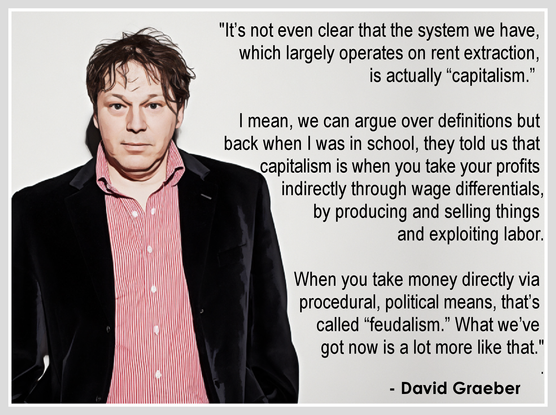Yup
I tend to think this description of financialised capitalism as 'techno-feudalism' is a bit misleading. Varoufakis is an economist, and generally gets that right - but (like Graeber) can be weak on history.
Feudalism was not merely a different economic system - it entailed entirely different legal, financial and ideological conceptions - obviously enough if you look at the central role of the church and monasticism, and its view of usury as a sin, in medieval Europe.
The feudal (and other pre-capitalist) ideas of ownership and property were not so much the 'absolute title' capitalist conception, but rather a system of rights and responsibilities tied in with traditional, religious, bloodline, etc, obligations - hence the early (and ongoing) resistance to 'enclosure' (privatisation): the 'landowners' didn't really 'own' the land in the modern sense - both they, and the 'peasants', had a set of rights and obligations with respect to the land and its produce, which the landlords were abrogating. Colonialism was essentially the same process: privatisation of what had been common property and resources. The early 'left-wing' resistance to capitalism, whether in Europe at the end of the middle-ages, or across the world as a result of slavery and colonialism, was in this sense conservative - a defence of older, more stable, and in many ways more acceptable social relations.
What is described as 'techno-feudalism' is rather just an extreme form of capitalism, best described I think by Piketty - capitalism's inevitable descent into rent-extraction, which happens to coincide with some technological developments, but would have proceeded anyway - and ultimately requires not feudal, but fascist political and social relations to sustain it.
